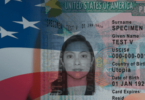The United States is regarded as the most culturally diverse country in the world. With a constant stream of immigrants for the past 150 years stemming from different parts of the world, it has grown to have a distinct American culture that is recognizable to any new visitor. Although it is not easy when making a stereotypical generalization about the United States, its ethnic mix of people has contributed to a variety of cultural identities. However, there is a typical culture that all Americans share from the Atlantic to the Pacific that an immigrant will ultimately face. This contributes to culture shock and many immigrants find it a bit daunting when acclimatizing to their new home in the United States.
Culture shock is a condition of disorientation that affects someone who is suddenly exposed to an unfamiliar environment or way of life. Feelings of anxiety, confusion and surprise are common to anyone who is supposed to operate within an entirely different culture since you are required to adapt to a new way of life and adopt a new set of attitudes. At first, you will be excited about the prospects of your new environment and you tend to downplay negative emotions. However, with time, the cultural differences, behavior and values of your new environment become more obvious and frustrating. You may feel isolated and seek security in the familiar like food from home which you may obsess about. Also, you may become opinionated and negative about your new surroundings and feel like everyone and everything is against you. However, you will gain understanding about your social situation and become more tolerant of the negative cultural differences you may face as an immigrant.
This article therefore illustrates some common cultural differences/shocks an African immigrant to the United States may face and find challenging or shocking in their first few years as an American. These tips will help an immigrant navigate through their new life as an American immigrant and offers insight into the American culture and way of life.
Smiling and greeting
Meeting an American for the first time, they usually appear open and friendly since they always wear a smile. They are pleased to make your acquaintance but it does not necessarily mean you are already friends. For the Americans, it is only polite to smile at a stranger and ask how they are doing. Usually, when conversing with one another, Americans tend to stay at least an arm’s length away from one another. Furthermore, Americans are usually informal and call each other by their first names. You can call your elders and superiors by their first names. However, it is taken as a sign of politeness and not meant to make someone feel unimportant or diminish their respect.
Appointments and time
Africans are notorious for not keeping time and this has led to the ‘African Timer’ stereotype. In America, it is appropriate to make an appointment before visiting someone and it is best to keep time. This is because they value their privacy and it is advisable you make a phone call before visiting even your good friend. Be punctual to your appointments and it is important you show up as agreed since your host would have taken the pains to prepare for your visit. It is also acceptable to decline an invitation and a response is always advisable if the meeting is inconvenient.
Individuality and privacy
Americans tend to value their sense of self and individuality and cherish equality. They believe they are masters of their own destiny and are always direct in their communication. They ask direct questions when they need information and usually mean what they say. When an American says no, it is an obvious no. Unlike Europeans, Americans are uncomfortable when you stand too close to them since that will be invasion of their personal space. They also do not like being asked their age, salary and shy away from expressing their emotions. They also avoid getting too close to others and pride themselves on self-reliance and individualism.
The law
In America, the law reigns supreme. Americans take the law very seriously and it is advisable to be cautious about what you say and do because it may land you in court. The law protects everything from personal property to pets and animals. You may be land in jail for being cruel to your dog, saying unkind words to someone because you were angry or for destroying someone’s property. The law also protects immigrants and it is the best recourse if you feel your rights have been violated be it racism or unfair treatment.
How to prepare for culture shock
To prepare for culture shock, it is advisable that you start by reading about living and studying in the US. You will find useful tips and information in platforms like Afrikagora Magazine and blogs dedicated to helping new immigrants navigate their new life in the diaspora. You should also get in touch with someone who lives or studies in the US to get advice about life in the US. You should also do research on how to interact with people in different social groups and the acceptable behavior in various situations. Gestures and body language differs from country to country and withholding judgment will aid you to be an objective observer subsequently facilitating your process of cross-cultural understanding. Moreover, get to know and interact with people in your new environment and respectfully ask questions about what you do not understand. Read various publications, attend a variety of festivals/events or meetup groups in your locality and avoid withdrawing to the comfort of what you are familiar with as this will only lead to homesickness.
Mikhail Adeoye
Mikhail is a content creator, a digital marketer, and an entrepreneur. He studied Political Science at the University of Ilorin Nigeria.









